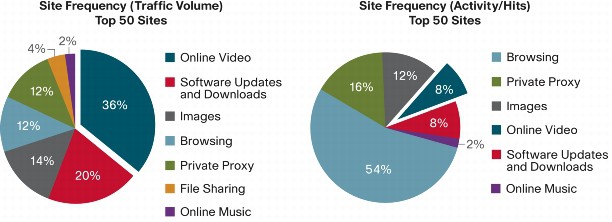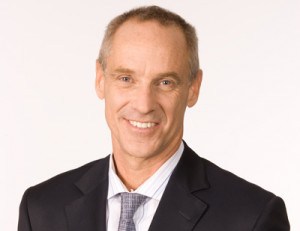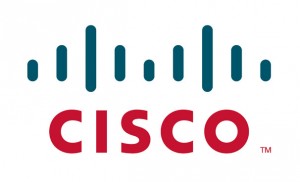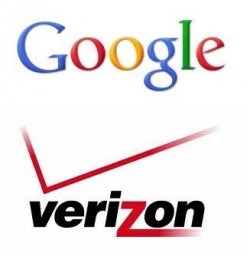
The Cowardly Lion is back.
Federal Communications Commission chairman Julius Genachowski believes he has a sound legal basis to implement Net Neutrality policies to protect Internet traffic from provider interference, but has stopped considerably short of implementing his own proposed enforcement mechanisms.
Genachowski outlined his ideas to implement Net Neutrality reform in brief remarks before the Commission this morning.
“Broadband providers have natural business incentives to leverage their position as gatekeepers to the Internet,” the text of the speech says. “The record in the proceeding we’ve run over the past year, as well as history, shows that there are real risks to the Internet’s continued freedom and openness.”
Genachowski praised the progress the Internet has managed to achieve over the past decade, and said his efforts would ensure that progress could continue with a minimum of regulation. In that spirit, Genachowski announced he would not move that the Commission re-assert its legal authority to oversee broadband by a process to reclassify the service under Title II, which governs telecommunications services.
Comcast successfully sued for repeal of the Commission’s original authority, implemented by Bush FCC chairman Michael Powell, which classified broadband as “an information service.” A DC Circuit Court discarded the legal basis for Powell’s regulatory authority in a sweeping victory for the cable giant, which was sued for throttling down speeds for broadband customers using peer to peer applications.
Genachowski argued he has “a sound legal basis” to pursue his latest vision of Net Neutrality rules in spite of the earlier court case. But critics doubt that and charge that the FCC chairman has capitulated to America’s largest broadband providers, including Comcast, AT&T, and Verizon.

Genachowski's view of the Internet does not meet the realities consumers face without Net Neutrality protection assuring a free and open Internet.
“By not restoring the FCC’s authority, Chairman Genachowski is unnecessarily placing his Net Neutrality agenda, and indeed his entire broadband agenda, at risk,” said Free Press executive director Josh Silver.
Boiled down, Genachowski now seeks just two major principles governing provider behavior:
- No censorship of content.
- Full disclosure of network management techniques so consumers know what providers are doing to their broadband connections.
Consumer groups are furious that the chairman has apparently discarded many of Net Neutrality’s most important consumer protections, and accused him of caving in to lobbyist demands and abdicating his responsibility to oversee critical broadband infrastructure.
Marvin Ammori, a cyber-activist and public interest law professor said the proposal also fell well short of meeting President Barack Obama’s repeated promises to enact strong Net Neutrality policies.
“It’s make-believe Net Neutrality,” said Ammori, who called Genachowski’s proposals “garbage” and “meaningless gestures.”
Now off the table:
A ban on Internet Overcharging schemes that allow providers to limit, throttle, or overcharge consumers who use more than an arbitrary amount of Internet usage per month. This exposes home broadband users to the same kinds of bill shock that wireless customers already experience.
A ban on using “network management” to artificially slow or block traffic the provider — at its sole discretion — determines is “harmful” or “congests” their network. Under Genachowski’s new proposal, the definition of “harmful” could be made by an engineering department on technical grounds or in an executive suite as companies ponder their financial returns. So long as they manage traffic without “unreasonable discrimination,” it’s okay with the Commission.
Built-in loopholes guarantee providers need only set rates high enough to assure only “preferred partners” can afford the asking price, and that only their competitors meet the definition of “harmful” traffic worthy of speed throttling. The proposal also reportedly only covers video and voice traffic on wireless networks. It’s open season on everything else if you access the web from a smartphone or wireless broadband service.
Actual legal authority to implement any broadband reform policies. It was Julius Genachowski and the FCC’s General Counsel Austin C. Schlick that argued without asserting legal authority under Title II, nothing the Commission did could be assured of withstanding a court challenge. Yet today the chairman now claims his legal team has found some legal precedents that somehow will keep his policies in force after inevitable lawsuits are filed. Former FCC chairman Powell thought much the same thing about his own idea of reclassifying broadband as “an information service.” The DC Court of Appeals thought otherwise, something Schlick knows personally, having fought the Comcast case before that court. In the end, Schlick correctly guessed his case was a train wreck, and was reduced to asking the court for legal pointers about how to draft regulations that could survive a court challenge.
[flv width=”640″ height=”380″]http://www.phillipdampier.com/video/The Third Way The Future of Internet Policy in America 5-2010.flv[/flv]
This “other” Julius Genachowski from May of this year delivered remarks that carried a very different tone about the importance of restoring legal authority to oversee broadband. But that was before AT&T put him on their speed dial, successfully reaching him personally more than a half dozen times in the last few weeks to argue their point of view. Consumers don’t have Julius Genachowski’s phone number. (4 minutes)
In short, Genachowski’s proposals represent near-total victory for providers, and any cable or phone company annoyed with the few scraps still on the agenda need only file suit arguing the Commission lacks the authority to stick its nose into their business affairs. Without Title II authority in place, that lawsuit is probably going to result in a favorable ruling putting us back where we are today — with no Net Neutrality protections. But by then, the Internet will be a very different place, loaded with toll booths from content providers and your ISP, who may ask for extra money if you want to watch Netflix or download files. Your speeds may be reduced at any time, to any level, if a provider deems you’ve over-consumed your traffic allowance for that day, week, or month.
Worse, some providers will dispatch bills with overlimit fees that could run into the hundreds of dollars (or more) for those with a family member who left a high bandwidth application running while running out the door to catch the school bus.

Providers and their well-paid lobbyists celebrate their victory over consumers' wallets
So long as providers agree to abuse everyone more or less equally (excepting their own “preferred partners” of course), Julius Genachowski believes the next ten years of America’s online experience can be as great as the last.
In his dreams. As Public Justice attorney Paul Bland said about dealing with ruthless companies like AT&T, assuming providers will behave favorably towards consumers puts you on the candy bridge into Rainbow Land.
Even with Genachowski’s proposed reforms, diluted to be point of being homeopathic, Republicans were moving in for the kill this morning.
Rep. Marsha Blackburn (R-Tenn.) a member of the House Energy and Commerce Committee, said she would work to topple any FCC-led Net Neutrality order.
“This is a hysterical reaction by the FCC to a hypothetical problem,” she said, adding that Genachowski “has little if any congressional support” for the action.
To overturn any order, Blackburn vowed to reintroduce her bill to prevent the FCC’s policy making process.
Robert McDowell, one of two Republican FCC commissioners, called the move to enact reforms a defiance against Congressional will.
“Minutes before midnight last night, Chairman Genachowski announced his intent to adopt sweeping regulations of Internet network management at the FCC’s open meeting on December 21. I strongly oppose this ill-advised maneuver. Such rules would upend three decades of bipartisan and international consensus that the Internet is best able to thrive in the absence of regulation,” McDowell said in a prepared statement.
All this is taking place at the same time Comcast has foreshadowed America’s future broadband experience: charging backbone provider Level 3 extra for sending Comcast customers online movies and TV shows, censored a blog run by one of its customers trying to get around Comcast’s unresponsive customer service agents, stifled innovation by independent cable modem manufacturer Zoom Modems, has achieved a fever pitch in lobbying Washington to hurry up and approve its colossal merger deal with NBC-Universal, and has a lobbying team convinced it can achieve victory on all fronts from a favorable incoming Congress.
If they and other broadband providers succeed, it’s time to get out your wallet and count your money before handing it over. A consumer revolt is all that stands between your Internet experience today and an endless series of pay-walls and stifled speeds tomorrow.



 Subscribe
Subscribe








